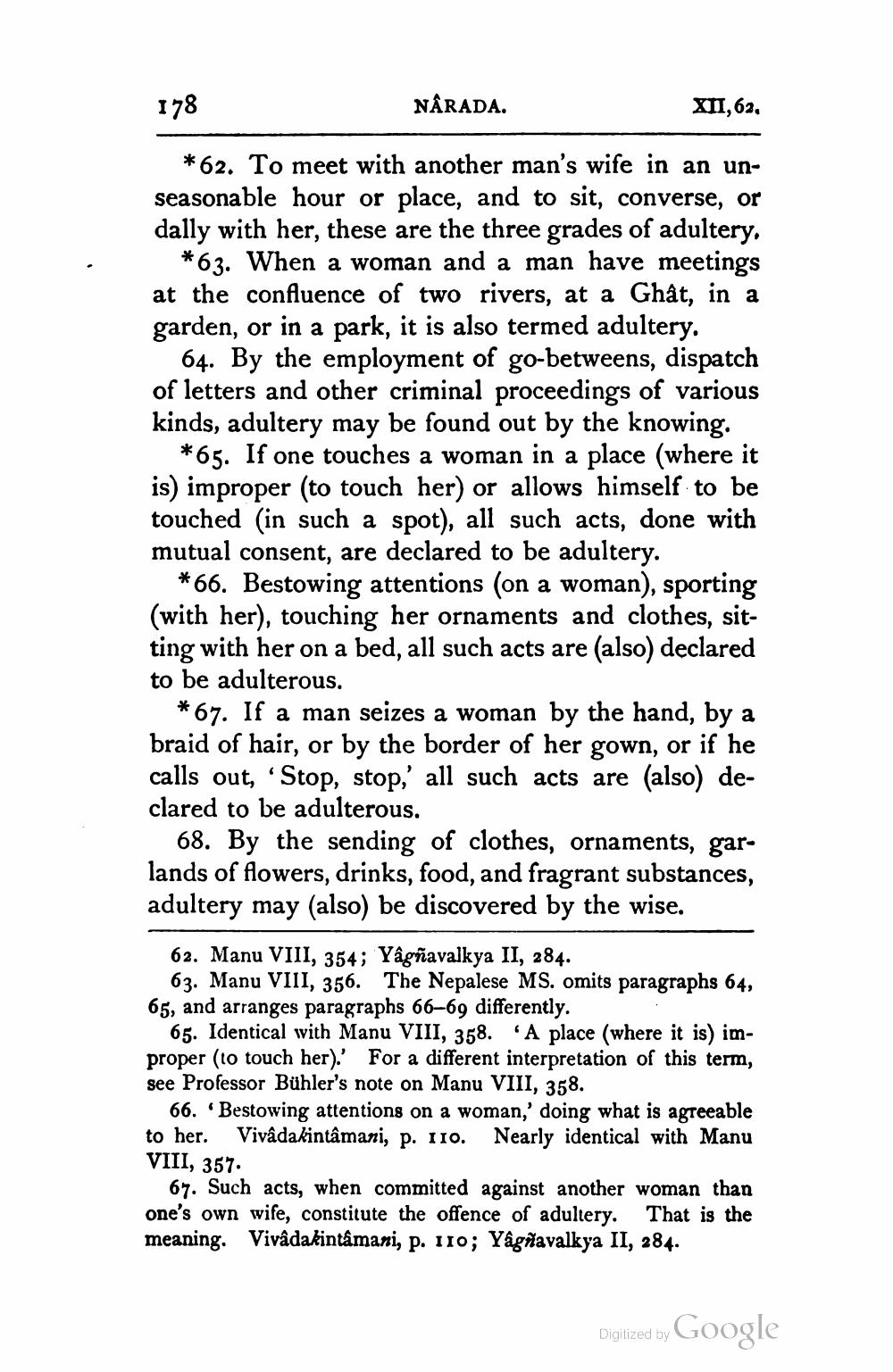________________
178
NÂRADA.
XII, 62,
*62. To meet with another man's wife in an unseasonable hour or place, and to sit, converse, or dally with her, these are the three grades of adultery.
*63. When a woman and a man have meetings at the confluence of two rivers, at a Ghât, in a garden, or in a park, it is also termed adultery.
64. By the employment of go-betweens, dispatch of letters and other criminal proceedings of various kinds, adultery may be found out by the knowing.
*65. If one touches a woman in a place (where it is) improper (to touch her) or allows himself to be touched (in such a spot), all such acts, done with mutual consent, are declared to be adultery.
*66. Bestowing attentions (on a woman), sporting (with her), touching her ornaments and clothes, sitting with her on a bed, all such acts are (also) declared to be adulterous.
*67. If a man seizes a woman by the hand, by a braid of hair, or by the border of her gown, or if he calls out, “Stop, stop,' all such acts are (also) declared to be adulterous.
68. By the sending of clothes, ornaments, garlands of flowers, drinks, food, and fragrant substances, adultery may also be discovered by the wise.
62. Manu VIII, 354; Yâgñavalkya II, 284.
63. Manu VIII, 356. The Nepalese MS. omits paragraphs 64, 65, and arranges paragraphs 66-69 differently.
65. Identical with Manu VIII, 358. A place (where it is) improper (to touch her).' For a different interpretation of this term, see Professor Bühler's note on Manu VIII, 358.
66. 'Bestowing attentions on a woman,' doing what is agreeable to her. Vivâdakintamani, p. 110. Nearly identical with Manu VIII, 357.
67. Such acts, when committed against another woman than one's own wife, constitute the offence of adultery. That is the meaning. Vivadakintamani, p. 110; Yagnavalkya II, 284.
Digitized by Google




